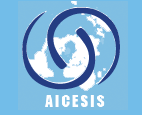
Jordan - Economic and Social Council
Business Details
Institutional characteristics
1. Establishment
- Date of creation: 10/2007
- Year operational: 07/2009
- Nature of the texts that create the institution (Constitution, law, decree, etc.):
Royal Decree
- Have any changes in recent years happened concerning the nature, membership, capacities of the Institution.
Amendments on the ESC bylaws, and council members membership, by adding one more group of members (Academics and Youth) resulting on 5 groups with 9 members each.
2. Mandate
Consultation and advisory ✅
Negotiation ☐
Both ☐
3. Mission and attributions
ESC has the mandate to advise the executive body with regards to social and economic issues and policies.
4. Composition :
- Number of members: 45
- Duration of the term: 4 years
- Membership categories:
Representatives of :
- Ministries and official bodies
- Employers
- Labors
- Civil society
- Academics and pioneering youth
- Process of designating the members (election, nomination, by whom, etc.):
Based on the recommendation of the president of the ESC, members will be Nominated by a decision of the Prime Ministries.
5. Management organs
Presidium / Bureau / Cabinet / Other: Please specify role, composition, designation :
Assembly General / Plenary session / Other: Please specify role, frequencies of meeting:
General Secretariat: Please specify role, composition, designation:
- Bureau
- Plenary session: The Council meets at least once every two months and whenever needed upon an invitation from its president or any of his two deputies or at a request.
- Follow up the implementation of public policy and related decisions.
6. Operational arrangement of the Permanent Secretariat
Yes ✅
No ☐
7. Gender balance (% of women)
Between 0% and 9% ☐
Equal or more than 10% (22%) ☐
Equal or more than 30% ✅
Equal or more than 50% ☐
8. Reporting Institution
Government ✅
Parliament ☐
Cabinet of President ✅
Cabinet of Prime Minister ✅
Ministry of Finance ☐
Ministry of Labour ☐
Ministry of Social Affairs ☐
Others (please specify):
9. Budget
Amount :
Between $0 and $249,000 ☐
Equal or more than $250,000 ☐
Equal or more than $500,000 ☐
Equal or more than $750,000 ✅
Source of funding: Central Budget
III. Organizational Structure
1. Committees/Sub-committees/working groups:
Government, Employers, Labor, Civil Society, Academics and pioneering youth Groups.
Economic, Social, Labor, Financial and Educational Committees.
2. Is there in your country any institutions of social dialogue outside your institutions?
Yes. Private and public institutions
IV. Functioning of the ESC
1. Who convenes the Institution? By its own or by ESC president or any of his deputies.
2. Has the Institution a legal right to issue own-initiative opinion? Yes.
3.How are decisions taken inside the Institution
By vote ✅
By consensus ☐
4. What kind of payment do the Councillors receive: wage, compensation, other?
Incentives
5. Is the Government obligated to follow the opinion issued by the Institution?
No
6. Is the Government obligated to report on the fate of the Institution opinions?
No
7. Are there official publications of the Institution opinions?
Yes.
8. Is the public opinion informed about the Institution works? How?
Yes by public media and its own media platforms(media office, website, social media)
9. What kind of relationship does the ESC have with civil society?
Part of the Institution ✅
Institutionalised relation ✅
Uninstitutionalised relation ☐
Collaboration ✅
Participation in the drafting of reports ✅
Nothing at all ☐
V.Main technical areas of competencies
Research, studies and position papers and Country annual report, meetings and Cooperation
Agriculture ✅
Civil Society ✅
Corporate Social Responsibility ✅
Culture ✅
Education and Training ✅
Employment policy and labour market regulation ✅
Environmental Policy ✅
European Affairs ✅
Financial and Economic Policies ✅
Fiscal and Taxation Policies ✅
Fundamental principles and rights at work ✅
Gender equality and anti-discrimination ✅
Governance ✅
Health and Medical Policy ✅
Infrastructure, Transport, and Energy Policies ✅
International affairs ✅
Labour Law reform ✅
Legal Affairs ✅
Productivity and competitiveness ✅
Science, Technology and Innovation Strategy and Industrial Policy ✅
Social Affairs ✅
Social Dialogue and Tripartism ✅
Industrial relations and Collective bargaining ✅
Dispute prevention and resolution ✅
Social Security and Social Protection ✅
Sustainable Development Goals (SDGs) ✅
Territorial Management ✅
Workplace compliance and working conditions ✅
Youth Employment ✅
Other :
VI. Brief description of major results obtained by your Institution in the last 3 years
Please give examples (Recommendations issued, Reports, Collective Agreements concluded, Conflict prevention and social peace obtained, National policies or legal frameworks including recommendations, Reform of your institution) and attached relevant documents
Since 2018, Esc issues Country Status Report, discussing the government bodies and ministries own strategies and its work plans implementation, with recommendations for all sectors to resolve difficulties. A lot of recommendations covering economic and social issues were adopted by the government.
Affiliation
Association of Arabian Economic and Social Councils and Similar Institutions






Jordan - Economic and Social Council